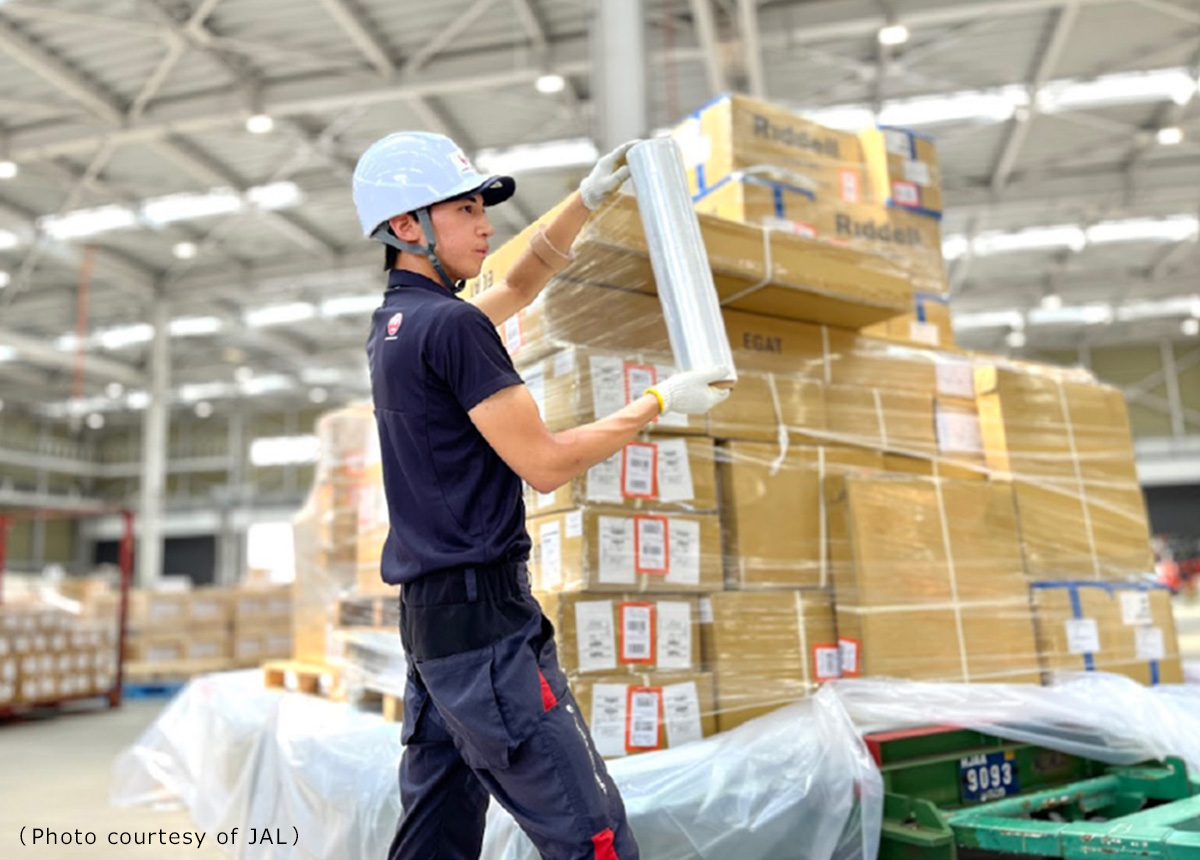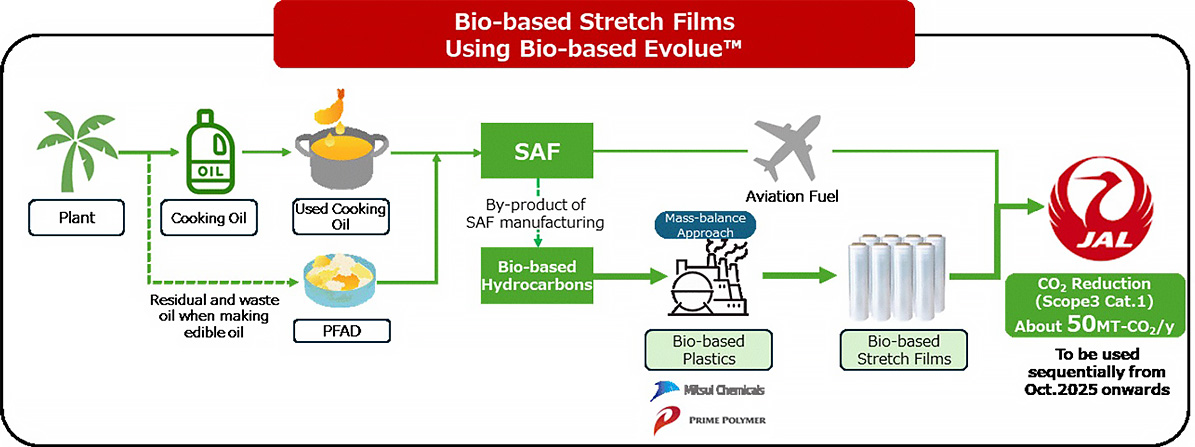It refers to a method in which, during the processing and distribution stages from raw materials to finished products, when raw materials with certain characteristics (e.g., biomass-derived materials) are mixed with those without such characteristics (e.g., petroleum-derived materials), the allocation of those characteristics is assigned to part of the product according to the amount of the raw material with the characteristics introduced (Ministry of the Environment Biomass Plastic Introduction Roadmap).
It is an important approach to enhancing the overall biomass content of society in order to achieve a carbon-neutral society, as the physical properties of petroleum-derived plastics and chemicals remain completely unchanged, and biomass conversion becomes possible even for materials that were previously difficult to convert. As of June 2025, the Mitsui Chemicals Group has already achieved biomass incorporation through the mass balance method in more than 40 product groups. Additionally, the mass balance plays an important role in chemical recycling, which is being developed as a recycling solution towards a circular economy.





